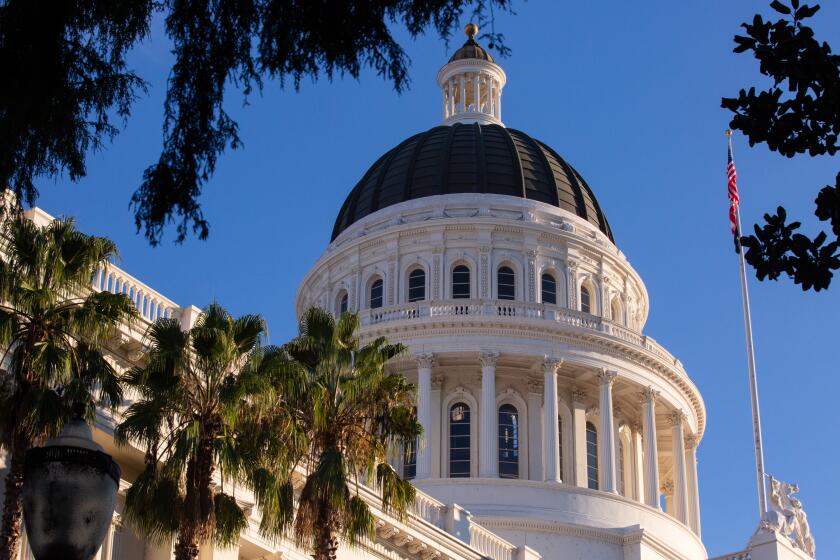Editorial: Scrap the small stuff, lawmakers

“Date shakes are a type of milkshake made with dates and originated in the Coachella Valley in California.”
Where do you think this sentence comes from?
- A state fair recipe contest.
- A brochure from a local chamber of commerce.
- A bill in the California Legislature.
The answer is C. It’s the first sentence of a bill by Democratic Assemblymember Eduardo Garcia of Coachella that would have made the date shake California’s “official state milkshake.”
Garcia saw the bill as a fun way to help the date industry in his district, which suffered during the pandemic from festivals being canceled and a drop in tourists visiting the region and sipping date shakes. Mercifully, his legislative colleagues thought better of making a law about milkshakes — even if date shakes are, as the bill notes, “high in fiber, iron, potassium and niacin” — and refused to bring it up for a vote before a key deadline earlier this summer. So it’s dead for this year.
But with the legislative session ending Wednesday, it’s discouraging to see that plenty of other trivial bills are still alive. Yes, lawmakers have tackled some important issues this year — proposing laws that would make it easier to build housing and create jobs, confront the climate crisis, mend unfairness in the justice system and help workers take time off to care for family. But California’s big problems are harder to address when policymakers and their staff get bogged down with minutia. Too many bills amount to legislative clutter.
The Legislature should put quality over quantity and prioritize impactful bills that will meaningfully improve our state.
Many of the unnecessary bills still pending in the Legislature or heading to the governor’s desk begin with an idea that evokes sympathy but don’t offer meaningful solutions. A proposed “Bill of Rights” for dogs and cats says, among other things, that they “deserve to be free from exploitation, cruelty, neglect and abuse.” We agree wholeheartedly, but state law already protects against animal abuse. The bill would require animal shelters to post the rights — and subject them to fines if they fail to.
Another bill requires social media companies to publicly post their policy on use of their platforms to distribute illegal drugs. It’s understandable that lawmakers would want to address the scourge of young people using social media to obtain dangerous drugs like fentanyl. But does anyone really think the problem will be solved by forcing Instagram or Snapchat to post a notice saying they prohibit drug dealing?
Then there are the bills containing ideas that seem reasonable but not important enough to merit a new law. Take outdoor light fixtures on state-owned buildings. Stargazers who like dark skies backed legislation requiring the state to use motion sensors or other devices to keep lights off when not in use. But the state could do this without a law. Similarly, legislation requiring state agencies help local governments comply with organic waste recycling programs seems like the kind of thing that shouldn’t require a new law. Isn’t it obvious that the government is supposed to cooperate to serve the people?
Other legislation delves into puzzling levels of minutia, like a bill to include a specific reference to the Space Force in every state law concerning veterans or the armed forces. The U.S. Department of Defense has recognized the Space Force as a branch of the armed forces since 2019. Do we really need to update 19 state code sections to reflect that? Or a bill that allows the governor to declare a state of emergency specifically for an electromagnetic pulse attack, which is a burst of radiation caused by a nuclear explosion. Sounds scary. But state law already gives the governor power to declare an emergency over a wide range of “conditions of disaster or of extreme peril,” which presumably would include a nuclear accident or attack.
California has lots of real problems that should keep policymakers busy — the nation’s highest poverty rate, a severe shortage of housing, an ongoing drought, millions of students who can’t read or do math at grade level. Lawmakers should stop tinkering at the margins and focus on crafting laws that will meaningfully improve life for Californians.
More to Read
A cure for the common opinion
Get thought-provoking perspectives with our weekly newsletter.
You may occasionally receive promotional content from the Los Angeles Times.











